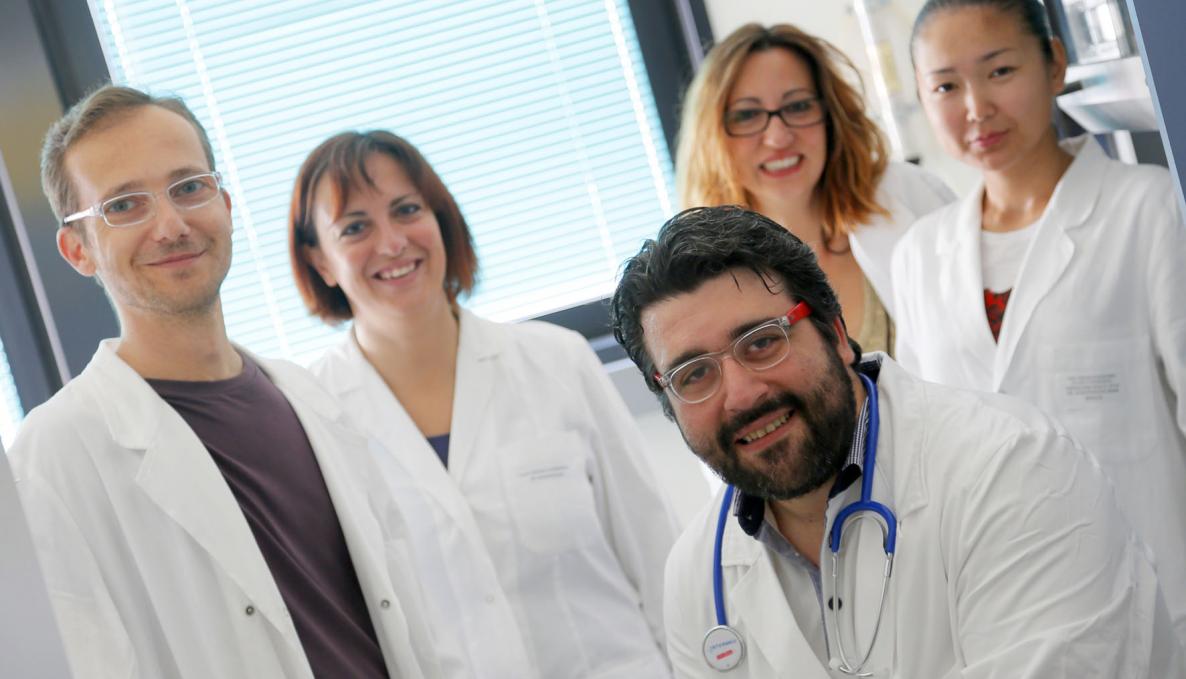Translational Medicine: beta-glucan enriched pasta may improve heart health and serve as “biologic bypass”. A new study led by scientists of Sant’Anna School Life Sciences Institute published in the journal Scientific Reports

A study published in the journal Scientific Reports claims eating spaghetti can help people improve their heart health, if pasta is enriched with Barley (1–3) β-D-Glucan (BBG), which enhances the growth of new blood vessels. The beta-glucan-enriched pasta was made from a mixture of durum wheat flour and whole grain barley flour. Healthy adult male mice fed with enriched pasta for five-weeks showed normal glucose tolerance and cardiac function. These results highlight the influence of functional pasta on gut microbiota, and indirectly on heart health, making the body more resistant to stress and to coronary artery disease.
The study led by Vincenzo Lionetti, professor of anaesthesiology and coordinator of the project, together with scientists of Sant’Anna School Life Sciences Institute at the Laboratory of Critical Translational Medicine (TRANCRILAB) shows for the first time that the intake of pasta containing 3% BBG (P-BBG) induces neovascularization-mediated cardio protection.
“So far” Said Lionetti – “techniques to promote collateral artery growth required surgical treatments, the use of stem cells extracted from bone marrow or gene therapy. Our study has directly tested the hypothesis that Barley β-D-Glucan-enriched pasta may serve as “biologic bypass” to enhance a healthy heart”.
At the current stage, the vascular endothelial growth factor expression in mice hearts increased by 87.7%, while the Parkin expression significantly increased by 125%. Therapies are needed to reduce the damage resulting from ischemic stroke and parkin plays a key role in regulating this dynamics. Barley is an important source of natural bioactive compounds with newly identified modulatory effects. It has many health benefits, thanks to the presence of soluble beta-glucan that helps protect blood vessels and shows a more significant improvement in insulin resistance.
Several small molecules present in the diet have been shown to have modulatory effects on angiogenesis. This review presents the current state of knowledge on the potential modulatory roles of dietary proteins on angiogenesis. There is currently limited available information on the topic. Milk contains at least three proteins for which modulatory effects on angiogenesis have been previously demonstrated. On the other hand, there is some scarce information on the potential of dietary lectins, edible plant proteins and high protein diets to modulate angiogenesis.
Keywords: dietary proteins, angiogenesis, lactoferrin, lactadherin, angiogenin-2, lactoferricin, food lectins, soy protein, high protein diets
Click here for the study published in the journal Scientific Reports, an online, open access journal.
Cover photo: Vincenzo Lionetti (archive)



